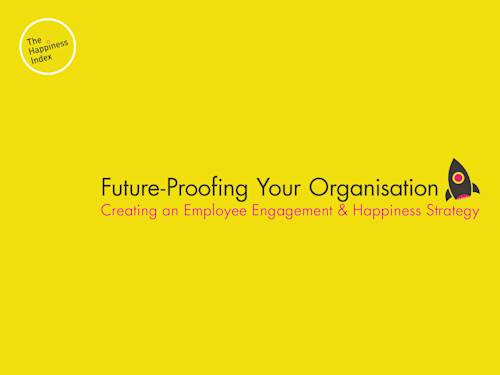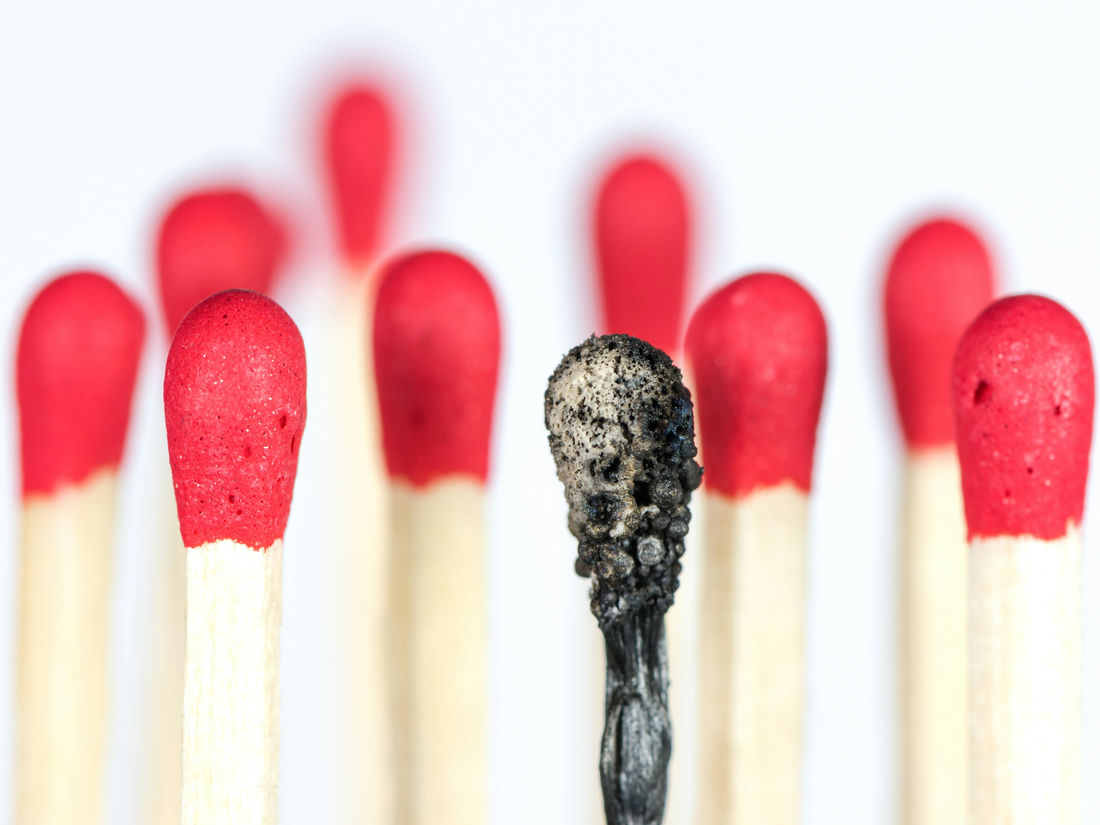
Creating an Employee Engagement AND Happiness Strategy
The Happiness Index attended Getahead Festival to learn how we can help those dealing with stress, overwhelm or mental health issues get more balance & achieve their goals. We may have also attended a few fitness classes, enjoyed a group meditation and got a massage or two in the process. Read on for our key takeaways.
Before reading this article you may want to revisit the differences between anxiety, stress and burnout.
Dr Anna from Chimp Management outlined a powerful mind management model that helps you become happier, healthier and ultimately more successful both inside and outside of the workplace. It’s called The Chimp Model.
She divided the brain into three ‘teams’:
Team one is the Human: You like to analyse things and consider facts and truths to make decisions.
Team two is the Chimp: The chimp is not under your control! It works with feelings and then creates the ‘information’ by using emotional (and often irrational) thinking to control how you respond to situations. This is the survival part of our brain that is responsible for fight, flight and freeze.
Team three is the Computer: This part is at the mercy of the Human and Chimp, as it feeds off the information they provide it with. It acts as a memory and occasionally takes the lead with previously formed decisions.
She discussed how the chimp part of our brain can take control and prevent us from rationally thinking through situations and therefore letting our emotions take over. This increases the chances of stress, mood swings, anger and anxiety. All of which can lead to burnouts and serious mental and physical health issues. Learn more on how to prevent burnout.
Learn to say “NO”.
Take 10 mins of daily reflection time, so you can understand when you’re being irrational and pick up on the warning signs of the chimp taking over.
Remove unhelpful beliefs e.g. perfectionism, the need to be correct, competitiveness…
Success and happiness is your own choice. Do what makes you happy!
Create a happiness list to help you achieve the above.
Treat the cause not the symptoms of anxiety, burnout and stress.
Focus on what is within your control and learn to let go of the rest.
Stay fit and healthy.
Learn to accept that the chimp is your best friend and is just your survival instinct looking out for you – apply a bit of rationality around why it’s making you feel anxious or stressed.
All the speakers came from completely different backgrounds and had completely different career paths, but they all have one thing in common… They overworked themselves to the point of burnout and severe illness.
Dom founded Social Chain after university. He combated work stresses with drinking and drugs and quickly became embroiled in a lifestyle he never envisioned for himself. He was balancing addiction with running a successful company and it all took its toll.
Eventually he recognised he had a drinking problem and replaced it with eating junk food. He would celebrate all successes and mourn all losses with burgers and chips instead of beers and wine. The result was just as detrimental to his health.
With a lot of help from professionals and family, he learnt to re-programme himself to be addicted to jogging and health foods instead. Dom’s health is comfortably in the green zone again – although he still considers himself as an addict that must take it one day at a time.
Joe was so embroiled in work that he ended up having seizures from stress which almost killed him. He also indulged in drink and drugs to mask his problems and when combined with serious mental health issues like anxiety and depression he was at risk of “imploding”!
He decided to take himself away and work from his computer overseas. Joe says “I quickly learnt that if you are running away from something instead of running towards something, your problems will not go away…”
This is where he met Sam, who was also working from his computer as a nomad. Sam was suffering from burnout whilst he was away and would rely on caffeine, sugar, alcohol and tobacco to get through his day.
Together they formed Nomad Pledge – an organisation to help working travellers that may be at risk of burning out or shutting down from mental health issues.
Michelle really caught my attention from the outset… mainly because she was in pyjamas!
She founded Livity, a youth-led creative network and marketing agency. After receiving funding, the pressure increased and she developed a permanent headache. She completely burnt out and developed a tumour which she says is commonly associated with stress.
She quickly learned how difficult people find it to discuss mental health; “I found it easier to talk about the physical pain of the biological cycles I was suffering from due to stress than it was to talk about my mental health.” She then went on to quote a colleague who said to her: “When you talk about your mental health, it’s awkward!”
She sold the company that she started from the ground up, as she wanted to start something new and regain her creativity. Interestingly, Michelle found inspiration from pyjamas of all things! She believes there two different “pyjama days” the happy ones spent with friends watching movies and the sad ones when you can’t get will yourself out of bed.
Out of this idea PJoys was born. A business where you can use pyjamas to help spark conversations about mental health!
Lean more about dealing with burnout.
Michael is a serial entrepreneur and the CEO & Co-Founder of Calm – a meditation app that has over 25 million downloads.
His other business ventures led him to believe that stress and health issues were synonymous with success. They are not part of the journey! When one of his businesses failed he had to let 200 people go. This had huge implications on his mental health.
He removed himself and took up meditation off the back of a friend’s advice. Through meditation he learnt to rewire his brain through neuroscience and reduce stress. From this Calm was born and the rest is history.
“The mind is just as important as our bodies. Treat them with the same respect and slow down the hamster wheel constantly revolving in your head.”
“Meditation is like going to the gym and working out your brain.”

Linked to Happiness & Engagement in our neuroscience methodology... learn more
The Happiness Index helps organisations measure the key employee engagement AND happiness drivers to power their people strategy.
Our unique platform offers the products, insights and tools to shine a light on your cultural health and empower management to drive thriving cultures.
Our neuroscience-based pre-built surveys measure the full employee experience - from onboarding to exit to empower and enable organisations to understand their people and create data-led action plans.
